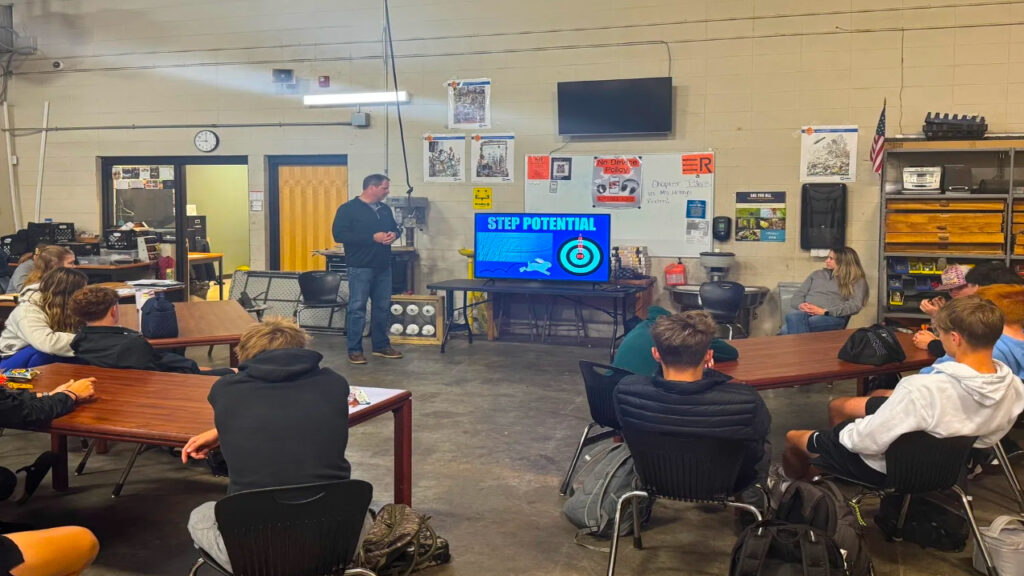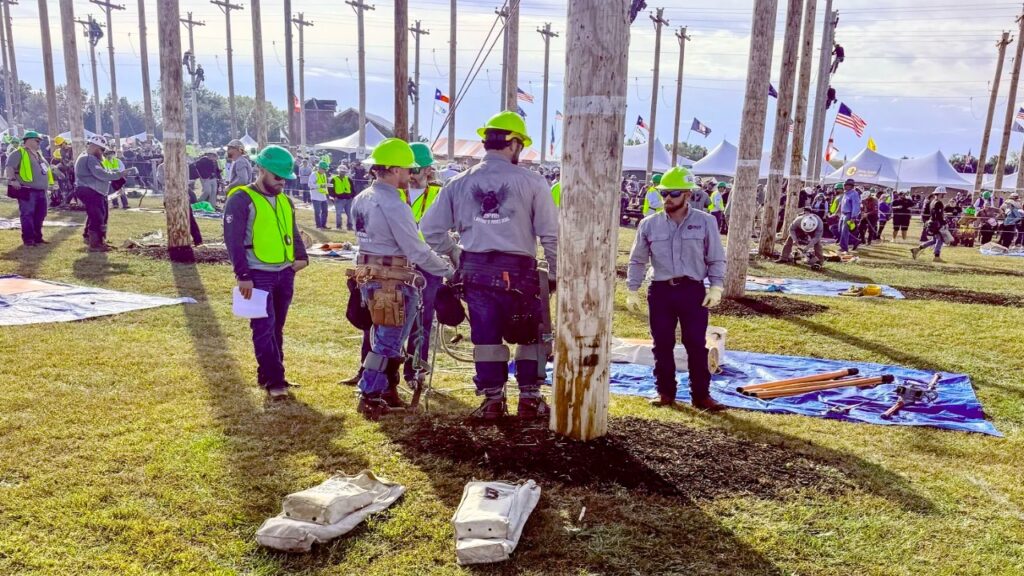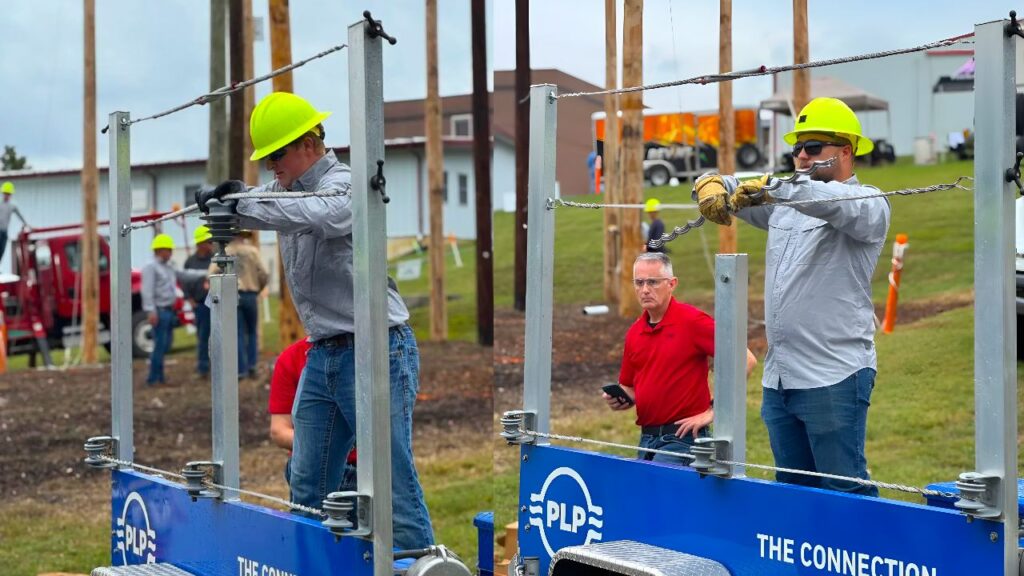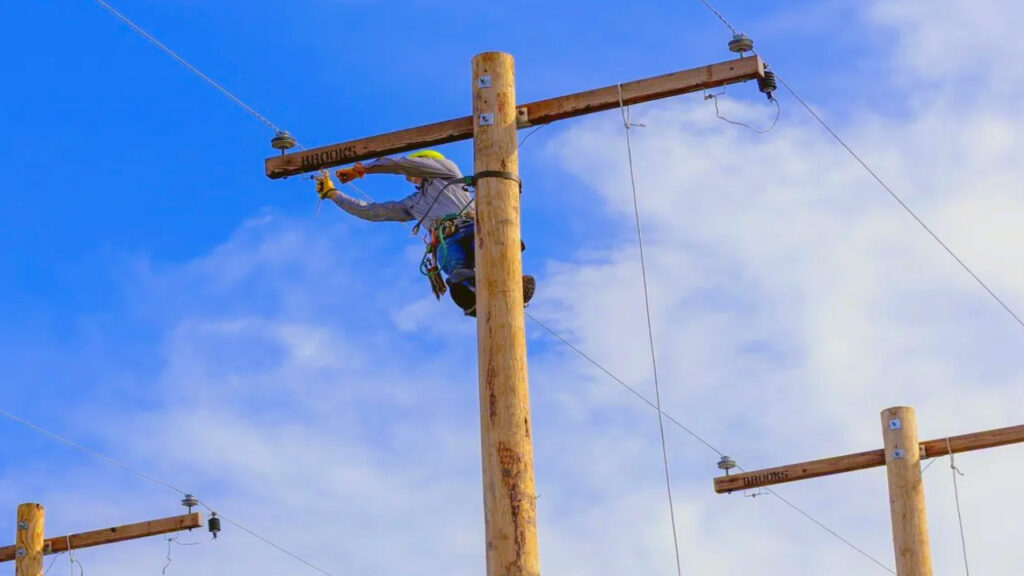For almost a decade, I have been working as a high-voltage lineman, so I can say with great confidence based on experience that you absolutely cannot work on high-voltage lines without training. As days go by, everything, including technology, is improving, and behind this progress is electrical power, and those who deliver electrical power to everyone are us, the linemen. Therefore, the demand for trained high-voltage linemen is greater now than ever before. However, working with high-voltage electricity requires specialized training, a strong commitment to safety, and a comprehensive understanding of how sophisticated electrical systems work. In this blog post, we will discuss the essentials of high-voltage lineman training: what it is, why it is important, and how those who aspire to be linemen can prepare for this challenging yet rewarding profession. Let’s begin…
What is Training for High-Voltage Linemen?
Training is the acquisition of practical, real-world knowledge in a specific field. High-voltage lineman training, therefore, is a complete program that enables individuals to gain the necessary information, skills, and safety knowledge required to work on electrical transmission and distribution systems. This training covers academic subjects like electrical concepts, circuitry, and transformers, alongside practical skills—such as climbing utility poles, working with live wires, using specialized equipment, and performing emergency repairs. A lineman must learn these subjects very well because they are always dealing with electricity.
Why is it vital to receive training in a specific field?
You must approach a mission with a clear vision; only then will success come easily. Working with high-voltage electricity is inherently dangerous. A small mistake can cause serious injury or even death. Therefore, linemen need proper training so they can perform their jobs well, recognize hazards, and take immediate action in emergencies. Utility companies and government agencies also require certification or licensing to ensure that all their employees meet a minimum standard of competence.
Specially trained linemen find jobs more easily. Those who put more effort into their training will find the path ahead much smoother.
The Path to Lineman Certification: Five Essential Stages
Let us now learn these five important areas that must be covered in training to become a qualified high-voltage lineman:
-
Foundation: Classroom Instruction:
The program starts from here, establishing the groundwork. In this class, trainees master the necessary fundamentals, including reading technical schematics, understanding electrical theory, and internalizing all governing safety regulations. This is very necessary for a lineman.

High Voltage lineman training in a class: Photo Credit: Ozark Electric Cooperative -
Application: Practical Skill Development:
This is a very difficult stage. A lot of practice is needed here. This stage translates theory into practice, stressing proficiency in climbing utility poles, skillfully employing insulated equipment, operating specialized machinery like bucket trucks, and perfecting strategies for overhead work. And this is pretty much the main part of the training. The first few days will be hard, but things will get better over time. When I was first in this training, I fell from the pole several times; I still vividly remember that memory. When seven days of training were completed, I developed a high fever, and my Family told me there was no need to do this job because it was too hard. But I was not one to give up; eventually, I became a successful lineman.
-
Protection: Intensive Safety Training:
This is also an important step. In this stage, essential procedures such as fall protection, strict adherence to lock and tag protocols, rescuing a victim in an emergency, and proactive threat identification are drilled. Every skill in this stage must be learned very well. After training, these tasks will be performed repeatedly in the field.
-
Immersion: On-the-Job Experience:
In this stage, through formal apprenticeship programs and internships, students bridge the gap between learning and doing, gaining crucial experience by applying acquired knowledge in active work environments.
-
Validation: Certification:
This is the final step of the process. Employers almost universally mandate the completion of a recognized training program or passing a rigorous licensing exam as proof of qualification. Only after this does the lineman’s life begin.

Lineman training on a Pole
⚡ Job Options After High-Voltage Lineman Training
Upon completing High-Voltage Lineman training, a bright and stable career path opens up for graduates in the electrical industry.This course will give you specific knowledge and abilities that are in high demand, which means you can find work in many different fields. As you work hard, you will certainly receive your reward.
Initial Employment
Training is complete! So, what job will you take up now? Let’s see the places where graduates can typically join after their training:
- Utility Corporations: These are the most common employers, such as various government and private electricity supply organizations responsible for managing the nation’s power distribution and transmission systems.
- Electrical Contractors: Contracting firms involved in large construction or infrastructure projects, which handle the installation, maintenance, and repair of electrical lines.
- City Government/Local Government Agencies: Opportunities exist in local area power systems or Public Works Departments.
- Telecommunication and Fiber Optics Companies: Although not directly electricity, many linemen can use their skills to work on setting up telecommunication towers or installing fiber optic cables.
Advanced and Specialized Roles
With work experience, additional certifications, and skill enhancement, linemen can reach higher levels in their careers and advance to the following specialized positions:
- Transmission Lineman: They are responsible for the installation, maintenance, and repair of high-capacity power transmission lines. This role often involves working at great heights.
- Substation Technician: Specialized skills are required for the maintenance and troubleshooting of the complex equipment and systems within electrical substations.
- Lineman Foreman / Supervisor: They undertake managerial responsibilities like leading a lineman crew and coordinating work assignments.
- Management/Project Manager: One can work in higher administrative roles, overseeing the planning, budgeting, and safety aspects of larger projects.
- Instructor or Trainer: This experience can be utilized to provide training and assist in the skill development of new linemen.
This industry offers career security and high earning potential, as the work of installing and maintaining power lines can never be outsourced and is considered an essential service.
To succeed as a High-Voltage Lineman, it is vital to possess physical fitness, a mindset for working at heights, and strict attention to safety.
We have tried to provide a lot of necessary information in this article. Hopefully, you are now aware of the lineman job even before becoming a lineman. We wish everyone a successful career.

⚡ Power Up Your Career: Take the Next Step!
You’ve read about the crucial training and exciting opportunities for High-Voltage Linemen. This challenging, rewarding, and essential career awaits those who are prepared.
Don’t just read—ACT!
- Research Training: Find accredited lineman schools focusing on Safety and Practical Skills.
- Get Ahead: Start building your fitness and look into getting your CDL.
- Engage: Connect with local utilities about apprenticeship or entry-level roles.
What part of the lineman training process are you most eager to master? Share your thoughts in the comments below!



